
The just war theory is a doctrine, also referred to as a tradition, of military ethics that aims to ensure that a war is morally justifiable through a series of criteria, all of which must be met for a war to be considered just. It has been studied by military leaders, theologians, ethicists and policymakers. The criteria are split into two groups: jus ad bellum and jus in bello. The first group of criteria concerns the morality of going to war, and the second group of criteria concerns the moral conduct within war. There have been calls for the inclusion of a third category of just war theory dealing with the morality of post-war settlement and reconstruction. The just war theory postulates the belief that war, while it is terrible but less so with the right conduct, is not always the worst option. Important responsibilities, undesirable outcomes, or preventable atrocities may justify war.
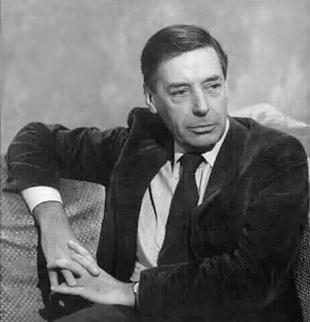
Sir Bernard Arthur Owen Williams, FBA was an English moral philosopher. His publications include Problems of the Self (1973), Ethics and the Limits of Philosophy (1985), Shame and Necessity (1993), and Truth and Truthfulness (2002). He was knighted in 1999.
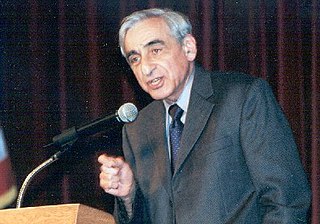
Michael Laban Walzer is an American political theorist and public intellectual. A professor emeritus at the Institute for Advanced Study (IAS) in Princeton, New Jersey, he is editor emeritus of Dissent, an intellectual magazine that he has been affiliated with since his years as an undergraduate at Brandeis University. He has written books and essays on a wide range of topics—many in political ethics—including just and unjust wars, nationalism, ethnicity, Zionism, economic justice, social criticism, radicalism, tolerance, and political obligation. He is also a contributing editor to The New Republic. To date, he has written 27 books and published over 300 articles, essays, and book reviews in Dissent, The New Republic, The New York Review of Books, The New Yorker, The New York Times, Harpers, and many philosophical and political science journals.

Ágnes Heller was a Hungarian philosopher and lecturer. She was a core member of the Budapest School philosophical forum in the 1960s and later taught political theory for 25 years at the New School for Social Research in New York City. She lived, wrote and lectured in Budapest.
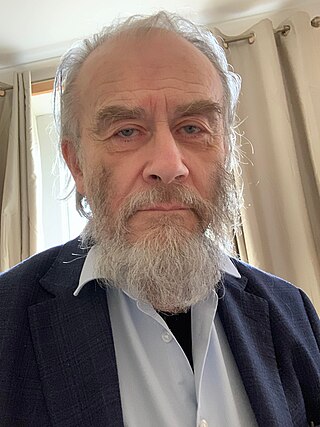
Stephen Richard Lyster Clark is an English philosopher and professor emeritus of philosophy at the University of Liverpool. Clark specialises in the philosophy of religion and animal rights, writing from a philosophical position that might broadly be described as Christian Platonist. He is the author of twenty books, including The Moral Status of Animals (1977), The Nature of the Beast (1982), Animals and Their Moral Standing (1997), G.K. Chesterton (2006), Philosophical Futures (2011), and Ancient Mediterranean Philosophy (2012), as well as 77 scholarly articles, and chapters in another 109 books. He is a former editor-in-chief of the Journal of Applied Philosophy (1990–2001).

William Klaas Frankena was an American moral philosopher. He was a member of the University of Michigan's department of philosophy for 41 years (1937–1978), and chair of the department for 14 years (1947–1961).

Geoffrey Sayre-McCord is an American philosopher who works in moral theory, ethics, meta-ethics, the history of ethics and epistemology. He teaches at the University of North Carolina, Chapel Hill. He is also the director of the Philosophy, Politics and Economics Society.
Robert L. Holmes is a Professor Emeritus of Philosophy at the University of Rochester, and an expert on issues of peace and nonviolence. Holmes specializes in ethics, and in social and political philosophy. He has written numerous articles and several books on those topics, and has been invited to address national and international conferences.
Cecil Anthony John Coady, more commonly publishing as C. A. J. Coady and less formally known as Tony Coady, is a prominent Australian philosopher with an international reputation for his research, particularly in epistemology but also in political and applied philosophy. Coady's best-known work relates to the epistemological problems posed by testimony, most fully expounded in his book Testimony: a Philosophical Study. It was influential in establishing a new branch of inquiry within the field of epistemology. He is also well known for his publications on issues related to political violence. Coady is a regular commentator in the Australian media on philosophical aspects of public affairs.
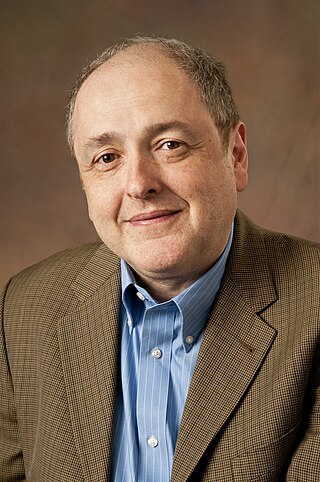
Brian Leiter is an American philosopher and legal scholar who is Karl N. Llewellyn Professor of Jurisprudence at the University of Chicago Law School and founder and Director of Chicago's Center for Law, Philosophy & Human Values. A review in Notre Dame Philosophical Reviews described Leiter as "one of the most influential legal philosophers of our time", while a review in The Journal of Nietzsche Studies described Leiter's book Nietzsche on Morality (2002) as "arguably the most important book on Nietzsche's philosophy in the past twenty years."
Huw Price is an Australian philosopher, formerly the Bertrand Russell Professor in the Faculty of Philosophy, Cambridge, and a Fellow of Trinity College, Cambridge.
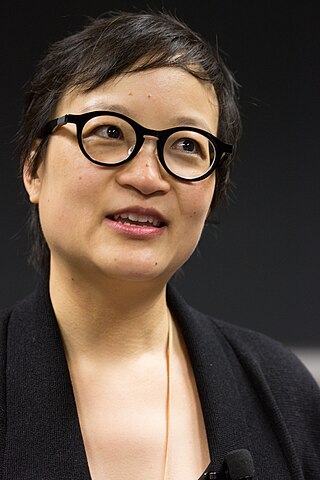
Ruth Chang is an American legal scholar who serves as the Professor and Chair of Jurisprudence at the University of Oxford, a Professorial Fellow of University College, Oxford, and an American professor of philosophy. She was previously a professor at Rutgers University from 1998 to 2019. She is known for her research on the incommensurability of values and on practical reason and normativity. She is also widely known for her work on decision-making and is lecturer or consultant on choice at institutions ranging from video-gaming to pharmaceuticals, the U.S. Navy, World Bank, and CIA.

Targeted Killings: Law and Morality in an Asymmetrical World is a non-fiction compilation book about targeted killing edited by Claire Finkelstein, Jens David Ohlin, and Andrew Altman. It was published by Oxford University Press in 2012. The book grew out of contributions by the authors to a conference in April 2011 at the University of Pennsylvania Law School. Targeted Killings features eighteen essays in five sections arranged by topic. The work argues that after the 11 September attacks by Al-Qaeda in 2001, the United States and other countries began to see the tactic of targeted killing differently. The practice of targeted killing had previously been accepted in situations of self-defence in military settings; after 11 September 2001 it was used to kill non-combatants and those not directly involved in a particular armed force.
Warwick Hugh Anderson, medical doctor, poet, and historian, is Janet Dora Hine Professor of Politics, Governance and Ethics in the Department of History and the Charles Perkins Centre, University of Sydney, where he was previously an Australian Research Council Laureate Fellow (2012–17). He is also honorary professor in the School of Population and Global Health, University of Melbourne. He is a fellow of the Australian Academy of the Humanities, the Academy of Social Sciences in Australia, the Australian Academy of Health and Medical Sciences and the Royal Society of New South Wales, from which he received the History and Philosophy of Science Medal in 2015. For the 2018–19 academic year, Anderson was the Gough Whitlam and Malcolm Fraser chair of Australian Studies at Harvard University. As a historian of science and medicine, Anderson focuses on the biomedical dimensions of racial thought, especially in colonial settings, and the globalisation of medicine and science. He has introduced anthropological insights and themes to the history of medicine and science; developed innovative frameworks for the analysis of science and globalisation; and conducted historical research into the material cultures of scientific exchange. His influential formulation of the postcolonial studies of science and medicine has generated a new style of inquiry within science and technology studies.
Anthony Dirk Moses is an Australian scholar who researches various aspects of genocide. In 2022 he became the Anne and Bernard Spitzer Professor of Political Science at the City College of New York, after having been the Frank Porter Graham Distinguished Professor of Global Human Rights History at the University of North Carolina at Chapel Hill. He is a leading scholar of genocide, especially in colonial contexts, as well as of the political development of the concept itself. He is known for coining the term racial century in reference to the period 1850–1950. He is editor-in-chief of the Journal of Genocide Research.

S. Matthew Liao is an American philosopher specializing in bioethics and normative ethics. He is internationally known for his work on topics including children’s rights and human rights, novel reproductive technologies, neuroethics, and the ethics of artificial intelligence. Liao currently holds the Arthur Zitrin Chair of Bioethics, and is the Director of the Center for Bioethics and Affiliated Professor in the Department of Philosophy at New York University. He has previously held appointments at Oxford, Johns Hopkins, Georgetown, and Princeton.
Frank Chapman Sharp was an American philosopher who specialized in ethics, including business ethics and the ethical conduct of war.
Nicholas Southwood is an Australian philosopher and associate professor of Philosophy at the Australian National University. He is a co-editor of the Journal of Political Philosophy and Director of the Centre for Moral, Social and Political Theory. Southwood is known for his research on contractualism and social philosophy.
Elizabeth Brake is an American philosopher and Professor of Philosophy at Rice University. She is known for her works on ethics and political philosophy. Brake coined the term amatonormativity to describe the widespread, but false, belief that everyone is better off in an exclusive, romantic, long-term coupled relationship, and that everyone is seeking such a relationship. Her book Minimizing Marriage received Honorable Mention for the American Philosophical Association Book Prize in 2014. Brake is the editor-in-chief of the Journal of Applied Philosophy.
Christina Louise Twomey, is an Australian historian and academic.











